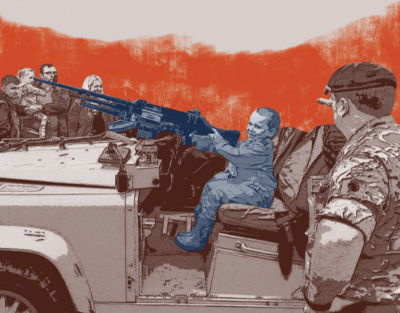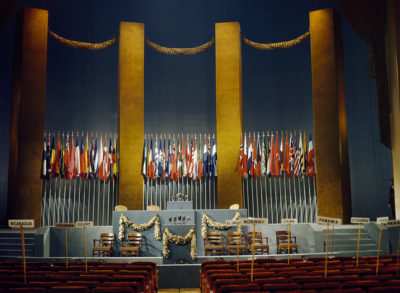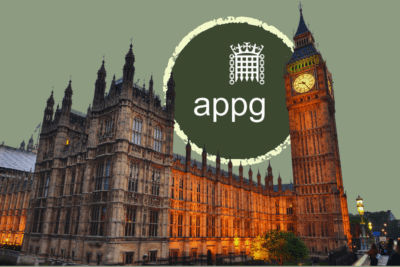Militarism the whole family can enjoy
ForcesWatch comment

This weekend, celebrations of the British armed forces will take place across the UK. Councils up and down the country are organising and supporting military parades, displays of weapons and ‘military assets’ and military-themed family entertainment.
The national Armed Forces Day event will be held in Liverpool, with city centre and waterfront events including Army, Navy and RAF ‘villages’, family zones, fly-pasts and a gun salute.
The event is a big one. Its promotion by Culture Liverpool puts it on par with Mersey River Festival, Liverpool International Music Festival and SGT Pepper at 50.
It is a day to reflect on how we got to the point where the armed forces are singled out from other public service professions – some of whom also face everyday danger – for a day of national celebration. What are the long-term implications of further entrenching militarism into our culture and equating armed service with ‘family-fun’?
The first Armed Forces Day took place in 2009. It was instituted on the basis of government fear that the military were losing the battle for public opinion after it failures in Iraq and Afghanistan.
The day is billed as, ‘a chance to show your support and salute our forces for all they do.’ Any concern that what the armed forces do should be open to debate is blotted out. This demonstration of public support for serving personnel is then transformed into support for the institutions of the military, as councils and partner organisations become its promoters and its recruiting sergeants.
How much does this cost the nation, and local councils each year when other services are facing cuts and closure? Recent evidence suggests that councils have to dip into their reserves, sometimes digging deep, to fund Armed Forces Day.
Despite a grant from the Ministry of Defence and some commercial sponsorship, the day is likely to cost a significant amount of money for Liverpool City Council who has to underwrite it and find the extra funding needed.
In fact the MoD grant for this national event is only £25,000. Whether or not they wish to attend or support the military, the people of Liverpool will be paying and, quite possibly, seeing cuts to council services deepened as a result.
In 2015, the final bill for the Guildford Armed Forces Day events was over £570,000. Even with some commercial sponsorship, the Council was left to pick up the tab of over £350,000. The MoD grant only accounted for 3% of the costs with the Council providing 14 times more funding.
In 2014, Stirling Council budgeted £250,000 for staging the national event but ended up paying over half a million pounds at the same time as £21 million in cuts over five years were due. Nottingham City Council allocated £115,000 from contingency funding in 2013. This same budget was charged with finding over £18 milllion of savings.
Given the scale of a national event, the logistical implications for a local authority are enormous. A review of the experience of hosting Armed Forces Day in Guildford found that the event ‘utilised staff from almost every department of the Council’. Some staff had to work every day for weeks and shifts went around the clock. Similar widespread calls on staff time were identified in a review of Armed Forces Day in Stirling.
The diversion of council staff away from other work represents a hidden cost and an impact on other services. The demands of hosting what is essentially a large promotional event, will contribute to the pressures on, and delivery of, vital year-round local services.
This year Nottingham City Council has announced that, after holding an event every year and the national event in 2013, it will not be having an Armed Forces Day due to ‘dwindling council budgets.’
Its not clear where the decisions to hold national Armed Forces Day events originate from within councils, despite their resource implications. An external review in Stirling in 2014 found failings in transparency and process in applying for the event. These included a fundamental ‘confusion’ over who agreed that Stirling should bid to host the event.
To understand why councils are using their limited resources to support one sector of the community each year, we also need to understand the extent to which the military have become embedded into civil society over the last five years through Armed Forces Covenant partnerships.
Every single local authority in Great Britain has signed an Armed Forces Community Covenant. On the face of it, these partnerships help to remove disadvantage from the armed forces living locally who experience disadvantage in access to services or need additional support. But under the covenants, local councils also pledge to encourage public support for the military through events such as Armed Forces Day.
In 2014, local peace activists challenged Wrexham Council to explain why they were reneging on a previous decision to not allow military hardware in the town’s public spaces. The Council’s Armed Forces Champion cited their obligation under the Community Covenant as the rationale. The military event, presented as family-fun, had machine guns and other weapons for children of all ages to handle.
This obligation is, no doubt, felt locally in areas with large armed forces communities, but it has been imposed across the nation from above. The MoD has worked relentlessly to create a sense of moral duty for local authorities, businesses, charities, schools and other sectors of civil society to partner with the armed forces.
Armed Forces Day is turning into Armed Forces Week with flags flown over town halls and public institutions and community groups of all kinds enlisted to support the military, including schools, performing arts, sports clubs and faith groups.
What is being sacrificed as a result? Ethical policies that seek to endorse the need for peaceful resolution of conflict are easily put aside in the face of pressures to show support for the military. Dissent certainly seems to have been silenced within council chambers. Where is the support for local peace events or those championing the bravery and commitment of workers in civilian public services?
BAE Systems is a regular sponsor of the national Armed Forces Day event. It is also the largest arms company in the UK and has been implicated in numerous human rights abuses through selling weaponry to oppressive regimes. Culture Liverpool has found itself endorsing BAE systems and sanitising their activities. Tweeting that BAE are ‘Dedicated to developing technology that keeps our armed forces safe’ is a blatant economy with the brutal truth.
“Dedicated to developing technology that keeps our armed forces safe” @BAESystemsplc sponsors @ArmedForcesDay 2017 #SaluteOurForces pic.twitter.com/MhV61vO0Xg
— Culture Liverpool (@CultureLPool) June 18, 2017
Guildford Borough Council had to suspend part of its sponsorship policy in order to accept money from BAE Systems, which barred sponsorship from organisations involved in the production and sale of weaponry and firearms. As this would prohibit BAE and possibly the MoD from part-funding the event, the policy was suspended with no democratic process.
Local authorities have become the military’s promotional agents, sending endorsements for military approaches and military recruitment out into the community. This should not be subsidised by local communities any longer.
We must stop being blinkered to the inherently destructive power of military solutions and stop celebrating its institutions blindly. We must learn the lessons from the recent past to work towards a mature and ethical way of approaching issues of peace and security. War has a tendency to divide communities and peace has a tendency to unite them. Lets promote peace.
See more: military in society, Armed Forces Day
Like what you read?
> Sign up for our newsletter or blog notifications
> Support our work – from just £2 a month










